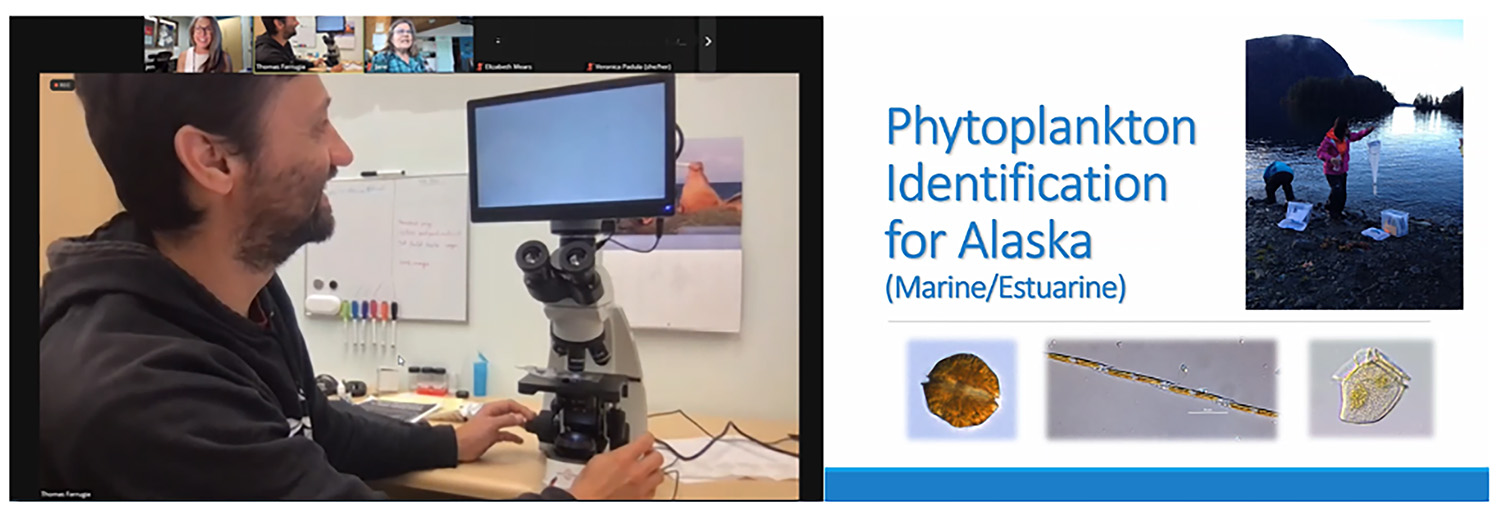
NCCOS scientists from the Phytoplankton Monitoring Network (PMN), in collaboration with the Alaska Ocean Observing System and Ocean and Earth Environmental Services, conducted a two-day virtual workshop to introduce Tribal and community members to NCCOS’ Citizen Science methodologies and techniques for monitoring harmful algal blooms (HABs). This workshop expanded Native American Tribes partnering with PMN to include the Qawalangin Tribe of Unalaska and the Aleut Community of St. Paul. Additional groups attending this workshop included the Kodiak Area Native Association and the Larsen Bay Aquaculture Farm. Participants were provided digital microscopes and sampling equipment necessary for phytoplankton monitoring and sample analysis, funded by the Alaska Conservation Foundation. PMN sessions covered HAB background information, sampling protocols, microscopy skills, and phytoplankton identification, along with an interactive taxonomic practice session. This training enables these Alaskan community participants to begin collecting baseline data on the presence of potential HAB organisms, increase the area of Alaskan coastline being monitored, and integrate that information into the larger Alaskan Tribal HAB monitoring network.
